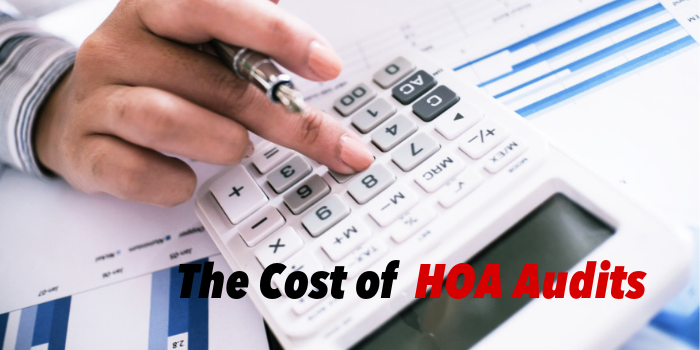Wondering if an audit is really necessary? Not all state laws require that HOAs conduct yearly audits, yet many associations budget for them anyway.
Here’s why:
-Bylaws. Even if state laws don’t specify requirements for audits, some associations’ bylaws do. It is the fiduciary responsibility of any HOA to follow their own covenants, especially when it comes to matters of financial stability.
-New management. Audits can ensure that a new board of directors or HOA management company has a fresh start, free from former financial concerns or issues.
-Assurance. While many HOAs rely on a less costly ‘review’, an audit is inarguably the highest level of assurance provided by a CPA for an HOA’s financial statements. Audits also provide homeowners with greater confidence in the internal controls and financial representation of their HOA.
-Board regulation. Unfortunately for some HOAs, board embezzlement and fraud does occur. Regular audits promote accountability amongst board members and can put a stop to misappropriation before it starts.
How Much Does an HOA Audit Cost?
Because audits are so thorough, they come at a price. For a full audit, HOAs should be prepared to pay between $4,000-$6,000. Especially when required by state law or the association’s bylaws, placing priority on budgeting for a regular audit is necessary and should be an integral part of the associations’ financial plan.
While the needs of each HOA will differ and should be determined by careful consideration of the board and its managers, investing in an audit may be key to maintaining the financial stability and transparency that are crucial to a successful community.
The HOA Audit Process
Although lengthy, a full audit can help identify potential financial risks and issues within the association. An independent CPA will conduct a detailed and objective examination of the following documents (as well as any others requested by the CPA), which should be compiled and organized to ensure a thorough and straightforward auditing process:
- Board minutes
- Bank statements including cancelled checks and deposit slips
- Investment information
- Copies of major contracts
- Paid invoices
- Current and next year’s budget
- Copies of insurance coverage
- Assessments receivables and unit owner balances
- Reserve schedules
- Engineering studies
- 1099s
For more answers to common HOA Management questions, visit our blog here. Or if you are a board member looking to switch to a new HOA management company, contact us today to receive a free quote and to learn more about why our customers are so happy with our services.








When I receive financial statements from the property manager should they have been reviewed by a cpa? I am a board member
The property manager should provide you the financials for the board to review. A cpa or third party accountant can validate the financials the property manager provide to the board.
Our HOA President just created an Audit Committee to serve our membership and make sure that their is no hanky pinky within our association. He had named the association president as chairperson who will build the committee from fellow directors. I think that this is having the fox guard the hen house!